Abstract
College students were instructed to press a button for points under a single reinforcement schedule or under a variety of reinforcement schedules. Instructions for a single schedule were either specific or minimal. Instructions on a variety of schedules involved specific instructions on eight different schedules of reinforcement. Subsequent to the varied training, responding under a fixed-interval schedule occurred at a low rate. Both the minimal and specific instruction training led to fixed-interval responding that was similar to the responding exhibited during training. These findings suggest that under certain conditions instructed behavior is sensitive to changes in contingencies.
Keywords: variety of training, instructed behavior, contingency-shaped behavior, response history, efficiency of responding, reinforcement schedules, button press, adult humans
Full text
PDF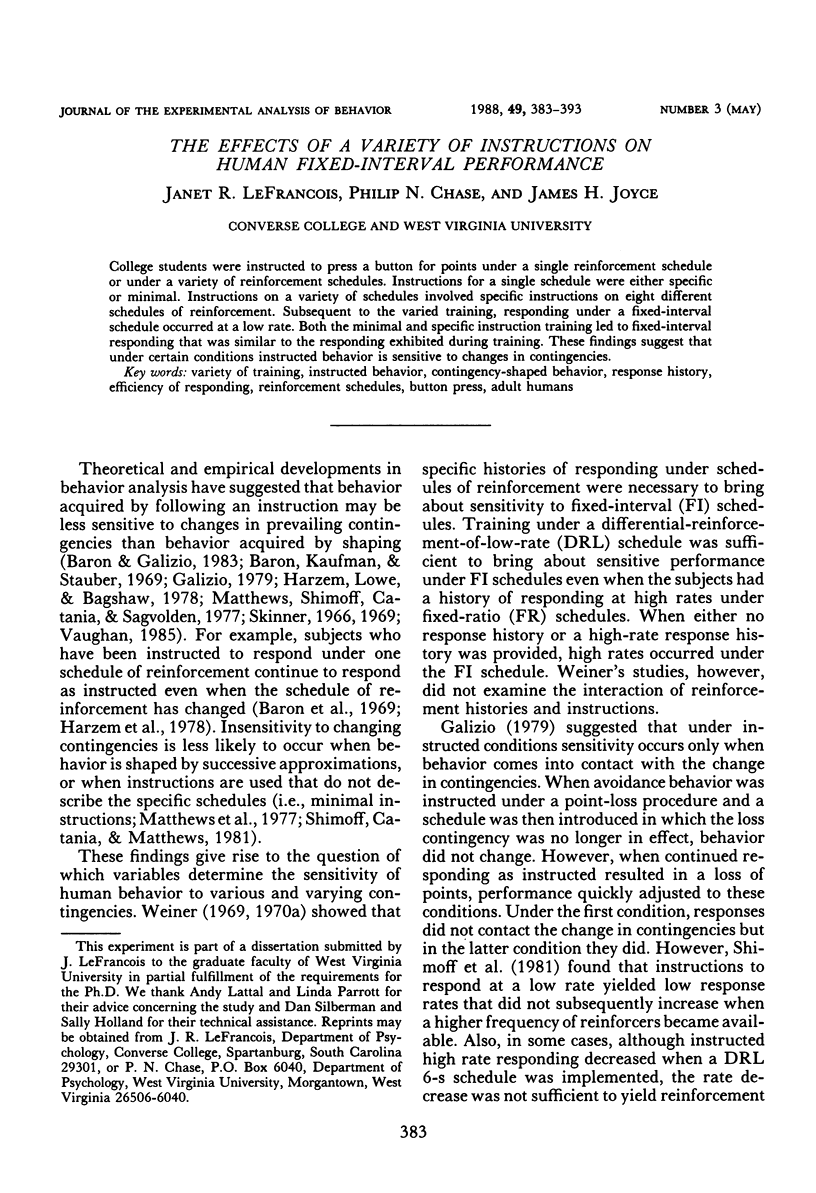
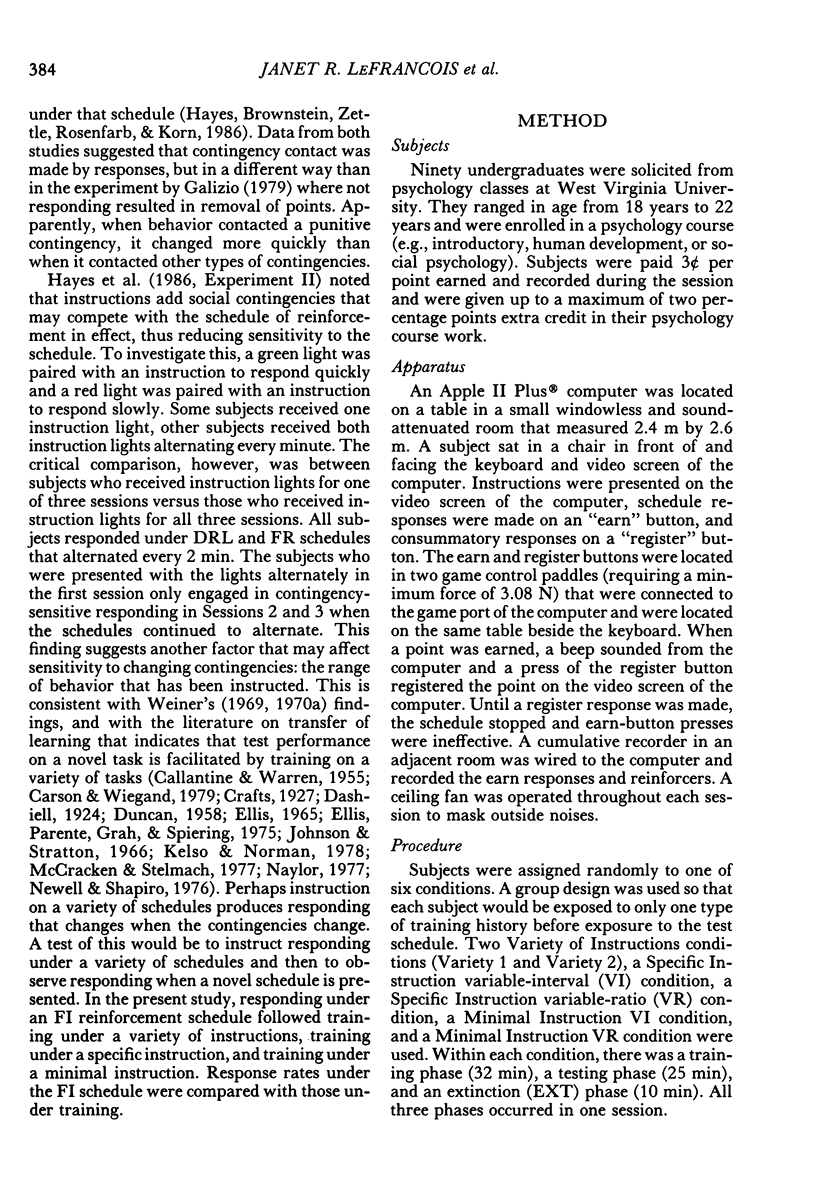
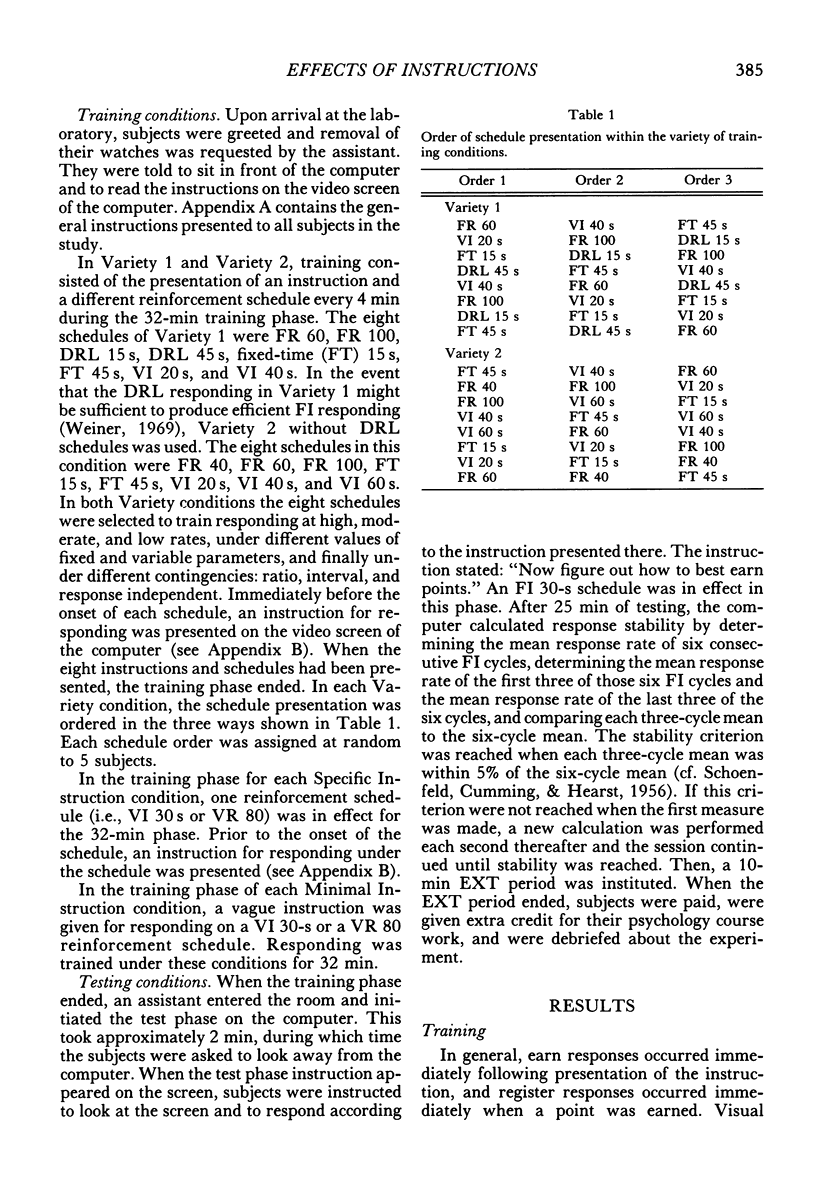
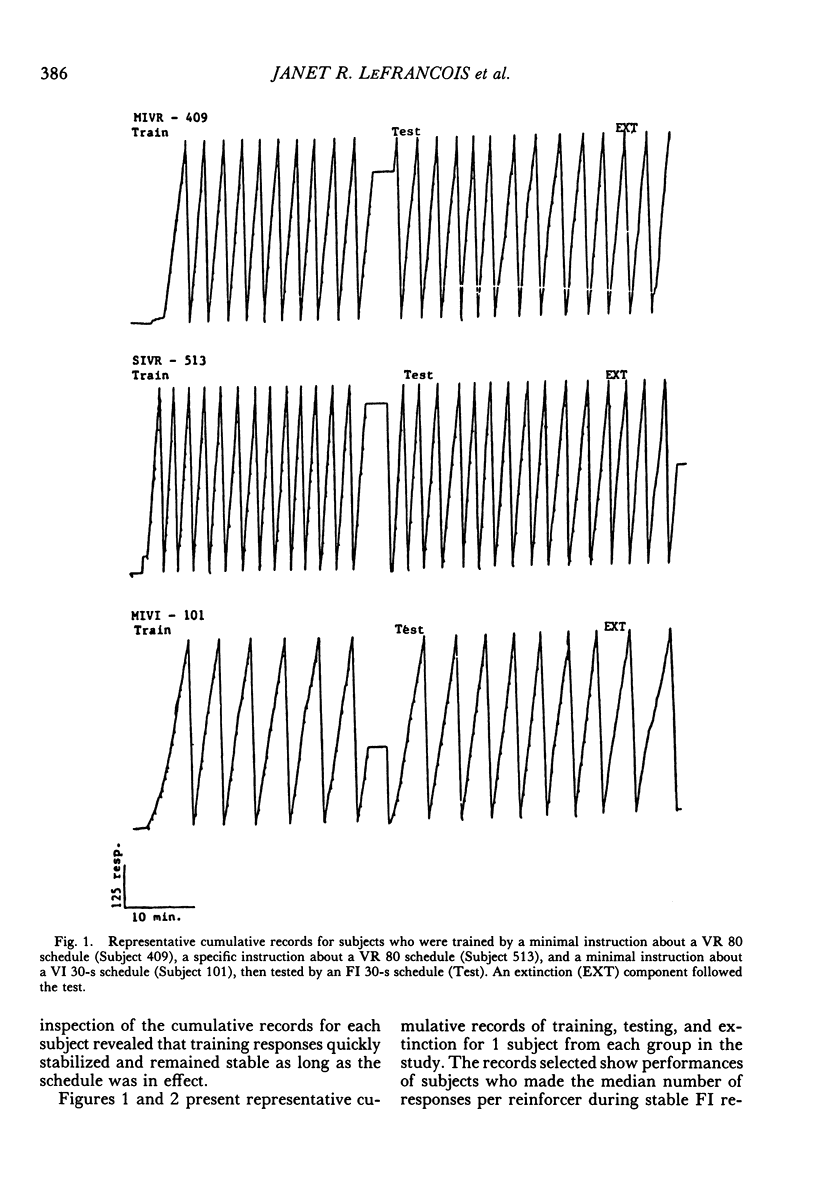
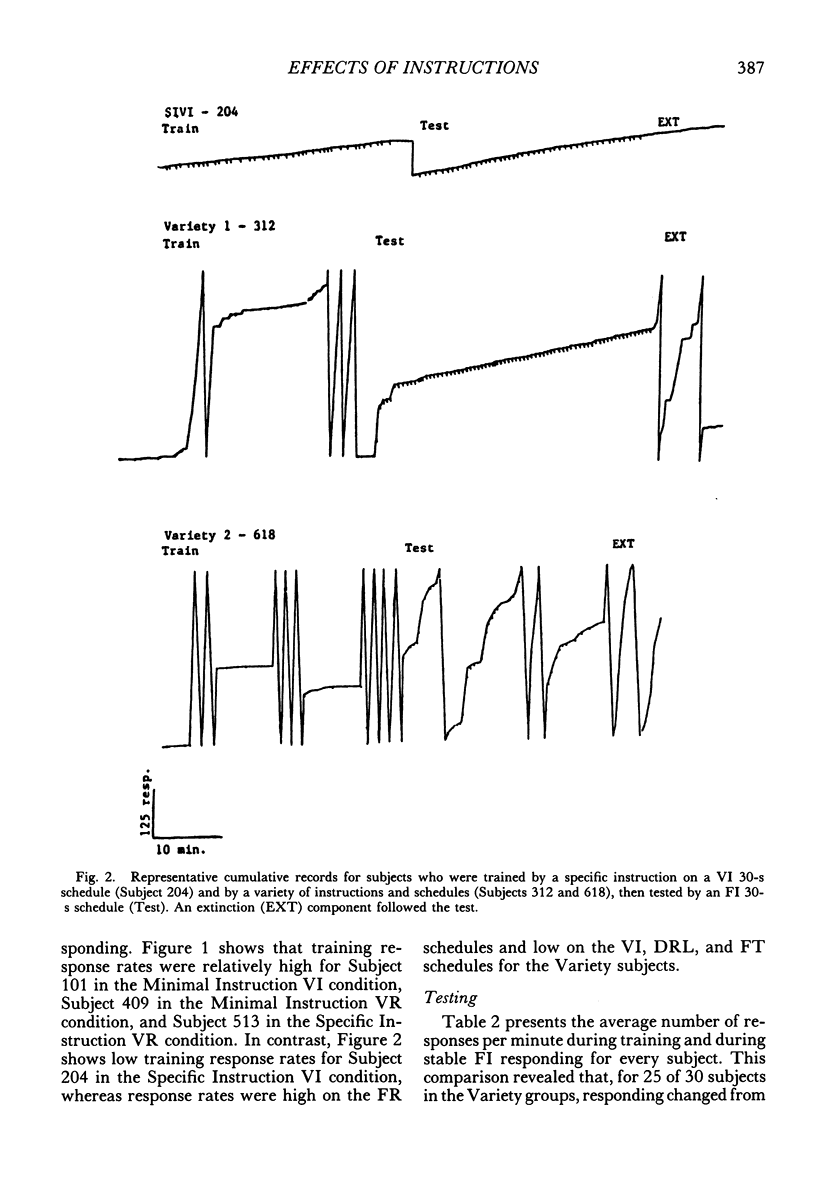
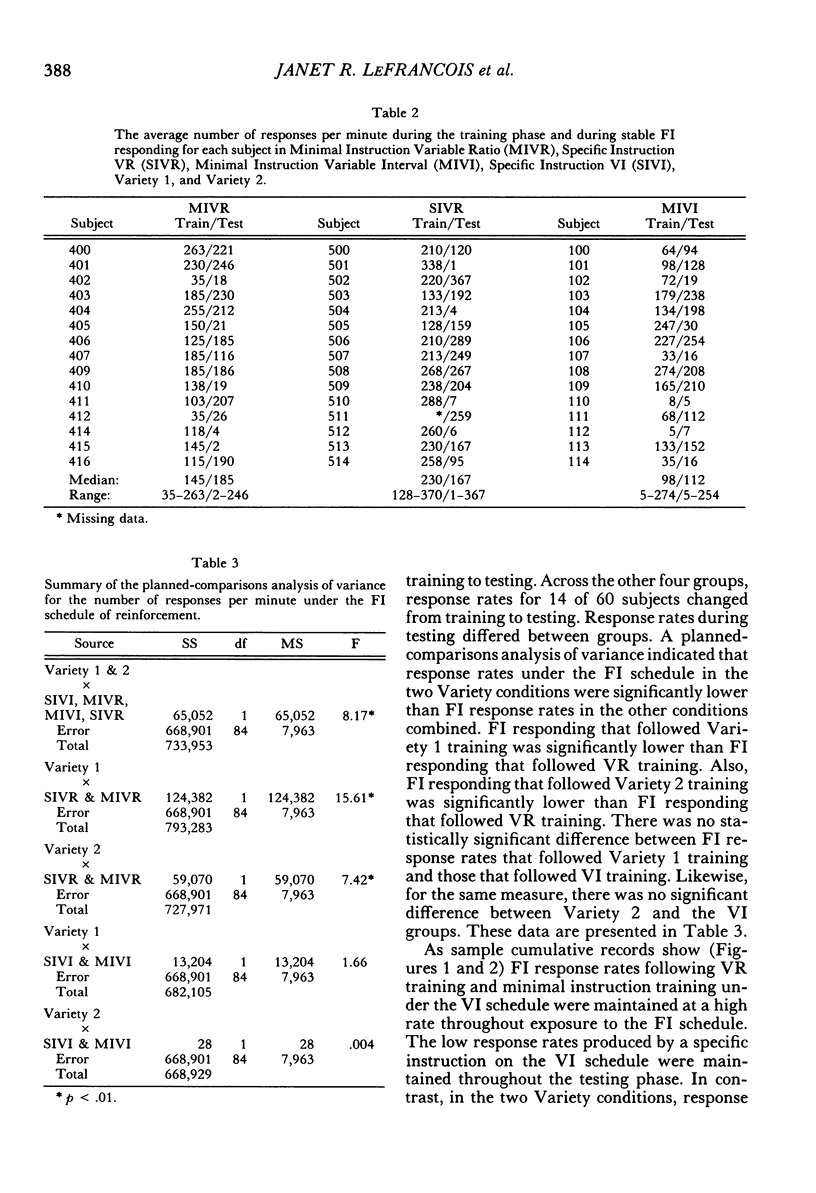
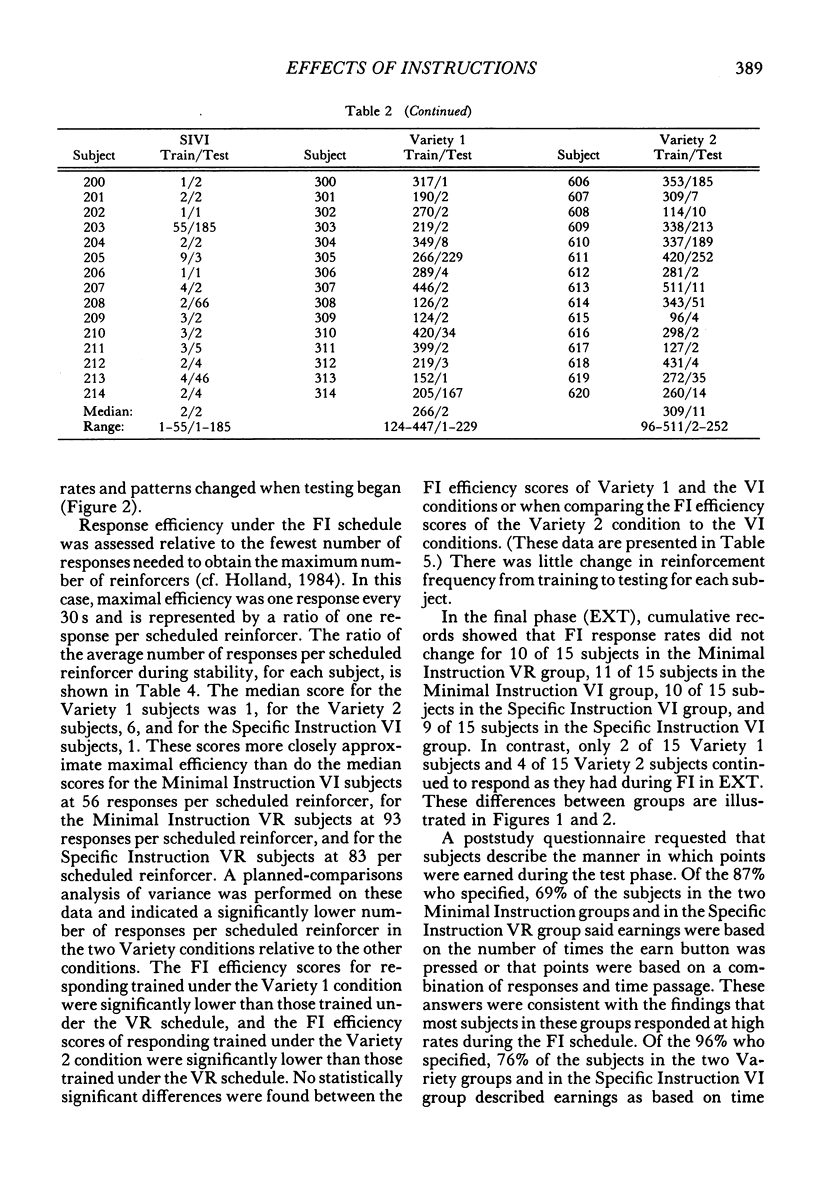
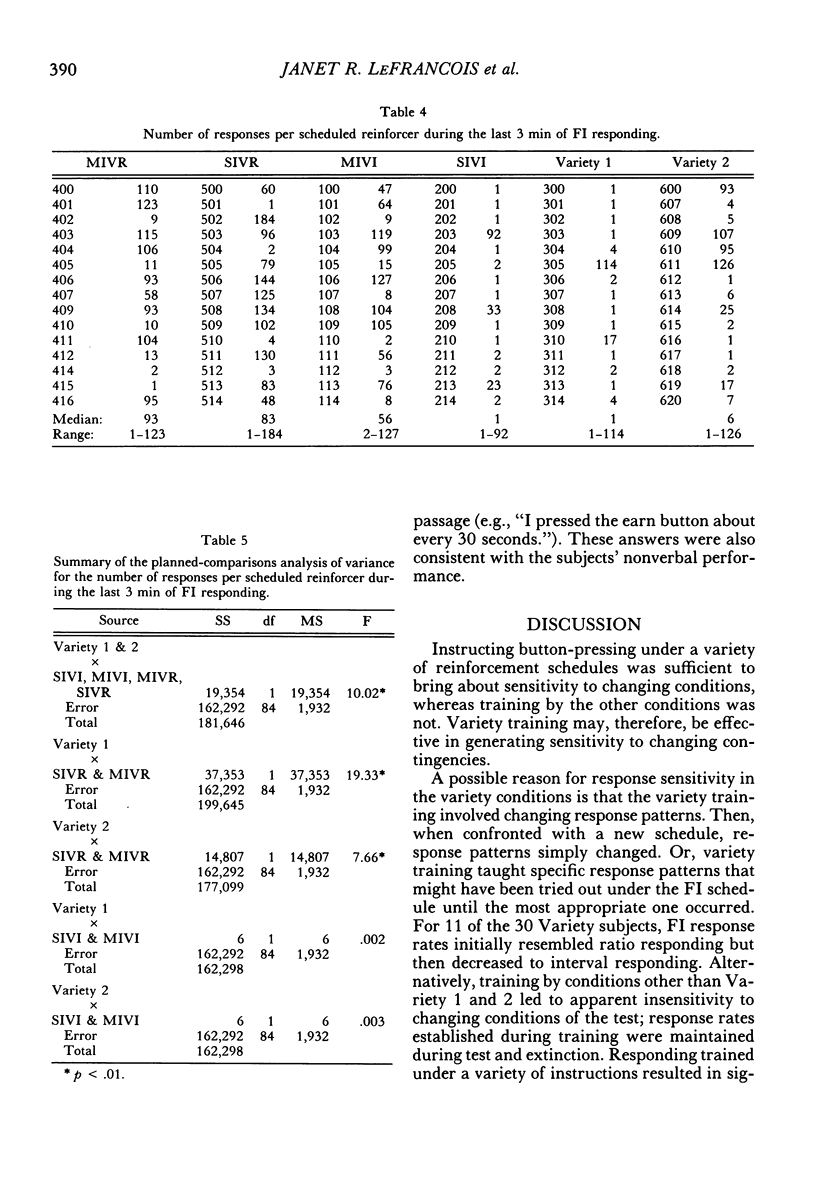
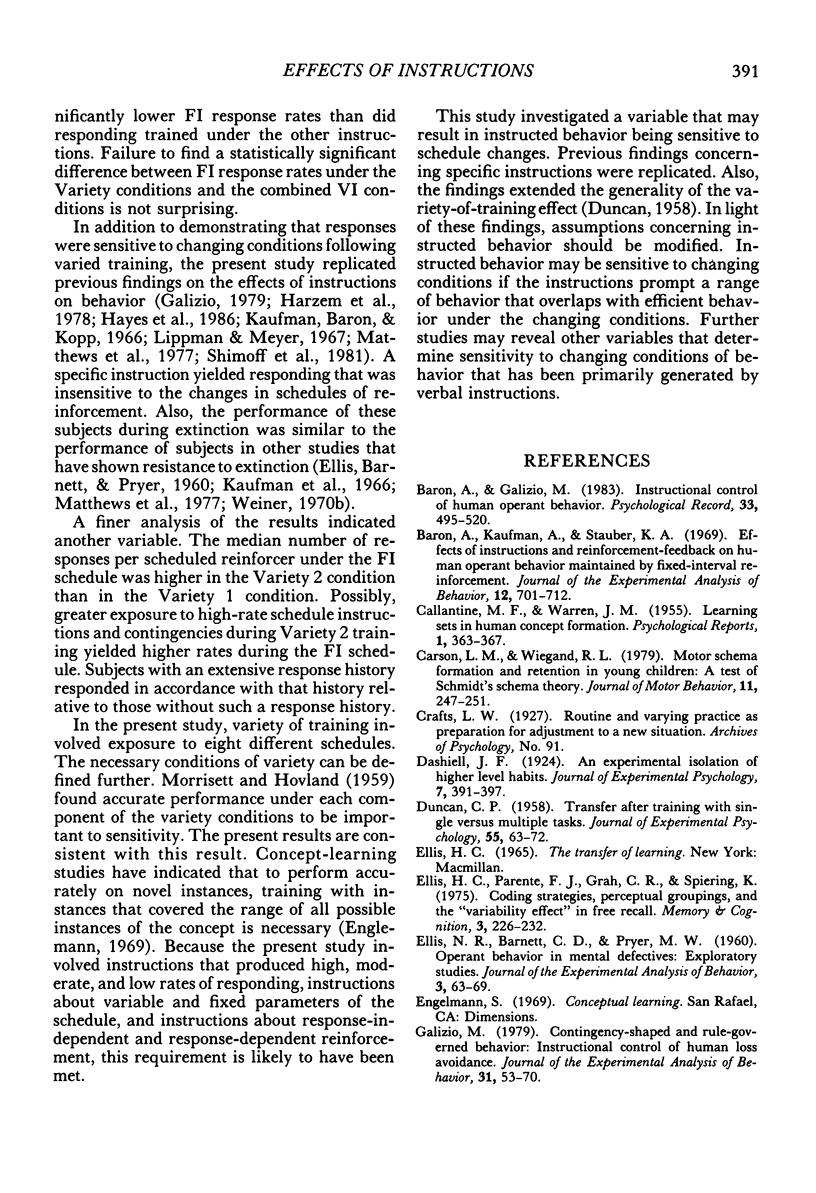
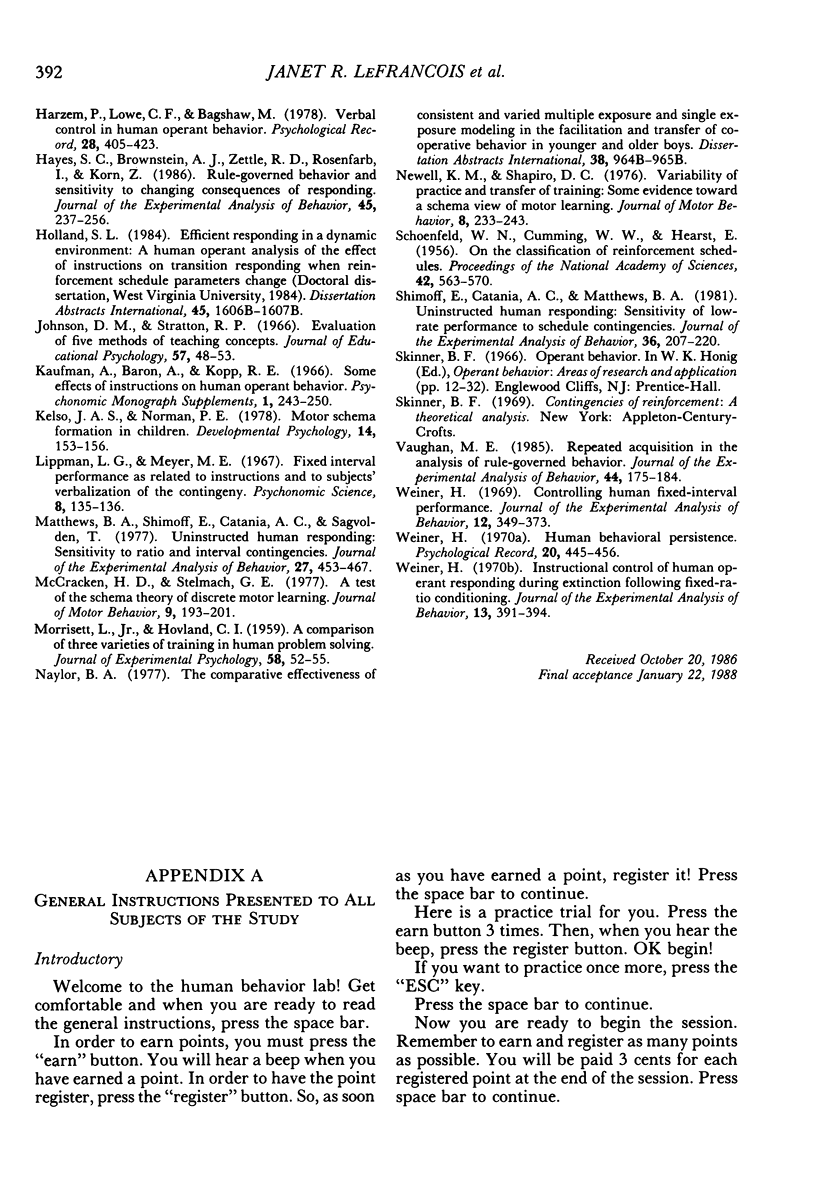
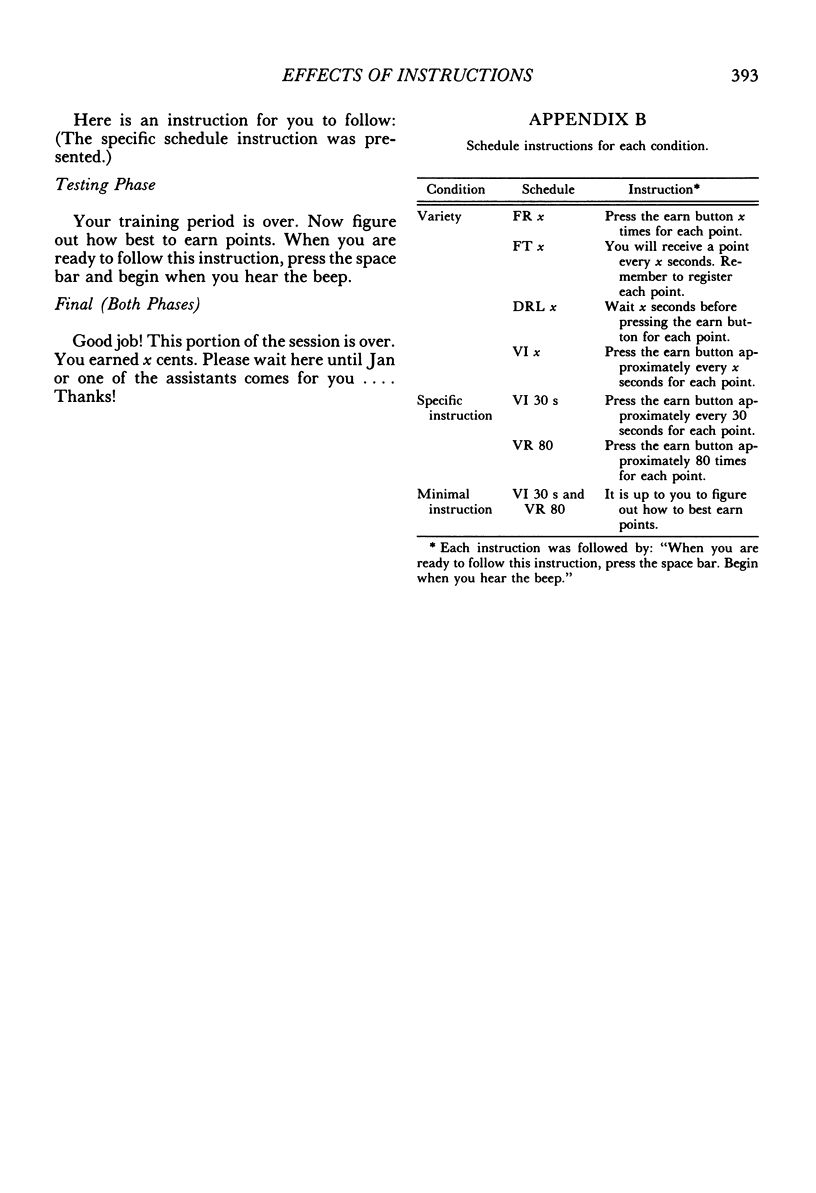
Selected References
These references are in PubMed. This may not be the complete list of references from this article.
- Baron A., Kaufman A., Stauber K. A. Effects of instructions and reinforcement-feedback on human operant behavior maintained by fixed-interval reinforcement. J Exp Anal Behav. 1969 Sep;12(5):701–712. doi: 10.1901/jeab.1969.12-701. [DOI] [PMC free article] [PubMed] [Google Scholar]
- DUNCAN C. P. Transfer after training with single versus multiple tasks. J Exp Psychol. 1958 Jan;55(1):63–72. doi: 10.1037/h0047506. [DOI] [PubMed] [Google Scholar]
- ELLIS N. R., BARNETT C. D., PRYER M. W. Operant behavior in mental defectives: exploratory studies. J Exp Anal Behav. 1960 Jan;3:63–69. doi: 10.1901/jeab.1960.3-63. [DOI] [PMC free article] [PubMed] [Google Scholar]
- Galizio M. Contingency-shaped and rule-governed behavior: instructional control of human loss avoidance. J Exp Anal Behav. 1979 Jan;31(1):53–70. doi: 10.1901/jeab.1979.31-53. [DOI] [PMC free article] [PubMed] [Google Scholar]
- Hayes S. C., Brownstein A. J., Zettle R. D., Rosenfarb I., Korn Z. Rule-governed behavior and sensitivity to changing consequences of responding. J Exp Anal Behav. 1986 May;45(3):237–256. doi: 10.1901/jeab.1986.45-237. [DOI] [PMC free article] [PubMed] [Google Scholar]
- MORRISSET L., Jr, HOVLAND C. I. A comparison of three varieties of training in human problem solving. J Exp Psychol. 1959 Jul;58(1):52–55. doi: 10.1037/h0044703. [DOI] [PubMed] [Google Scholar]
- Matthews B. A., Shimoff E., Catania A. C., Sagvolden T. Uninstructed human responding: sensitivity to ratio and interval contingencies. J Exp Anal Behav. 1977 May;27(3):453–467. doi: 10.1901/jeab.1977.27-453. [DOI] [PMC free article] [PubMed] [Google Scholar]
- Schoenfeld W. N., Cumming W. W., Hearst E. ON THE CLASSIFICATION OF REINFORCEMENT SCHEDULES. Proc Natl Acad Sci U S A. 1956 Aug;42(8):563–570. doi: 10.1073/pnas.42.8.563. [DOI] [PMC free article] [PubMed] [Google Scholar]
- Shimoff E., Catania A. C., Matthews B. A. Uninstructed human responding: Sensitivity of low-rate performance to schedule contingencies. J Exp Anal Behav. 1981 Sep;36(2):207–220. doi: 10.1901/jeab.1981.36-207. [DOI] [PMC free article] [PubMed] [Google Scholar]
- Vaughan M. E. Repeated acquisition in the analysis of rule-governed behavior. J Exp Anal Behav. 1985 Sep;44(2):175–184. doi: 10.1901/jeab.1985.44-175. [DOI] [PMC free article] [PubMed] [Google Scholar]
- Weiner H. Controlling human fixed-interval performance. J Exp Anal Behav. 1969 May;12(3):349–373. doi: 10.1901/jeab.1969.12-349. [DOI] [PMC free article] [PubMed] [Google Scholar]
- Weiner H. Instructional control of human operant responding during extinction following fixed-ratio conditioning. J Exp Anal Behav. 1970 May;13(3):391–394. doi: 10.1901/jeab.1970.13-391. [DOI] [PMC free article] [PubMed] [Google Scholar]


